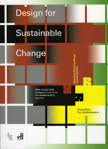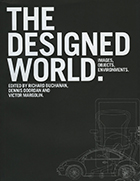David Stairs

Transmission electron micrograph of an Ebola virus virion. Image credit: Frederick Murphy / CDC.
I recently finished Laurie Garrett’s The Coming Plague (1995). Thirty years ago I read it for the first time, and it stayed with me as one of those unforgettable books one refers back to again and again.
The history of epidemics tells us that humans throughout civilization have understood when plague has arrived, although they often did not understand its mechanism. Since the invention of the microscope we have known of the existence of microbes. Since Pasteur we have understood the need to control them. Each passing generation has made new discoveries into the epidemiology, and eventually, the genetics of bacteria, viruses, parasites, and fungi.
In 2020 Garrett’s book was reissued by Picador, just in time for Covid-19. I remember her appearing as a guest expert on news programs, like the PBS Newshour. This was more than appropriate. Garrett had worked for PBS between 1980-88, years of the early stages of the AIDS pandemic and of Garrett’s research on emerging diseases. It takes a special sort of journalist to do the in-depth research Garrett elicits in her book.
As an employee for Newsday in the early ’90s, Garrett was resident at Harvard while she compiled and drew out her narrative of the modern-day sleuths who discovered and fought scourges like Lassa, Hanta, and Ebola. Many of these scientists, like Joe McCormick and Karl Johnson, worked for decades through the CDC in pitched battles with virulent microbes.
If Covid proved anything, it was that Homo sapiens, for all of its cleverness, is not a fast learner. Garrett’s other cognate book, Betrayal of Trust (2001), is about how governments are failing in their efforts to protect public health. Politics and economics are often tied to pandemics. The public reaction to business shutdowns and mask mandates, so fraught with resistance in 2021-2022, was little different from similar reactions to the 1918 Spanish Flu pandemic. More embarrassing still, the homophobia practiced by the Reagan Administration over AIDS in the 1980s is a lasting testament to the error of moralizing over public health.
Unfortunately, such moralizing proceeds apace, especially in America. Tony Fauci’s just released memoir, On Call, tells how virulence does not pertain only to disease. The hatred and threats to life that public servants suffer during pandemics are a unique reminder of humanity’s potential for depravity.
Public discussions and political maneuvering since the overturn of Roe prove that a proportion of society are willing to put religious belief above public health, in this case women’s sexual health. The irony, as documented by Garrett, is that microbes do not operate with a moral compass. Nature, “red in tooth and claw,” proceeds on a completely different playing field, and at the moment the microbes are winning.
The Coming Plague is replete with thousands of examples of how viruses and bacteria outwit our best efforts to control them. This is obvious when one considers that, of the total number of species so far identified, many millions remain unknown, and the majority of these by far are microbes.
Science was seemingly in the ascendance after the discovery of antibiotics in the 1920s. For about fifty years humanity was able to reproduce with impunity, until drug overuse resulted in resistance among bacteria. A century later, in the age of genetic engineering and CRISPR, scientists would seem to be armed with even more powerful tools in their fight against disease. But they have also recognized the implacability of their adversaries.
“Microbes are masters of genetic engineering,” Garrett quotes Canadian microbiologist Julian Davies as saying. Scientists have determined that bacteria can move from the gut to the ovaries of insects and alter the male chromosomes, assuring that all offspring would be female, born ready infected with the microbe. Microbes swim in a bacterial and viral “gumbo,” swapping and accumulating genes that might have immediate benefit, or even provide long-range advantages to survival. When human products, like antibiotics or agricultural chemicals are added to this soup, microbes go into mutation overdrive in an effort to develop survival strategies.
Human activity, accentuated by addictions, sexual appetites, and environmentally destructive behaviors, not to mention hyper-concentration of urban populations, provides microbes with optimal opportunities to reproduce and spread. And the rapid rate of microbial reproduction and genetic mutation guarantees that they will continue to be one step ahead of human researchers.
The divisiveness of Homo sapiens, moral and religious resistance, and avaricious extraction-based lack of respect for the environment all bode well for evolving microbes. Governments and societies are going to have to find the will to overcome prejudice and superstition if we are to have even a fighting chance of survival. Spending for insect and rodent control purposes, as well as expenditures for public health and epidemiology, will need continued support and improvement if we want to hold traditional scourges like cholera and malaria at bay. New and emerging microbes are the great unknown, but if Covid-19 is any indicator, our response to them is anything but efficient.
Meanwhile, a warming climate practically guarantees new opportunities for emerging diseases. Some, like the ebola pictured above, although it was only “discovered” in the 1960s, are estimated to have been around for nearly 20 million years. Laurie Garrett’s book was prophetic thirty years ago, in the immediate aftermath of the emergence of AIDS. In a post-Covid era, it has to be obvious that the “plague,” as a metaphor for microbial dominance, has not only arrived, but it’s endemic. That we’re only just noticing is testament to our naivité. Hopefully, we’ve matured beyond the point of believing that what we can’t see won’t hurt us.
David Stairs is the founding editor of the Design-Altruism-Project.










